- Home
- Helen Forrester
The Lemon Tree Page 8
The Lemon Tree Read online
Page 8
She replied heavily, ‘I can already read and write in French and Arabic. English is coming. And Papa taught me arithmetic and how to keep accounts – some geography, as well. And how to buy and sell – and judge silk.’
‘Then you’re a very accomplished young lady,’ responded Tom patiently. ‘I could use your help, if you’d give it me.’
Though he had caught her interest, Helena looked at him with suspicion. ‘Help you?’
‘Sure. I can get folks to do all kinds of chores – but Joe and me – neither of us is good at accounts, keeping records and such. And, one of these days I reckon the British Government’s going to reach out and take over from the Hudson’s Bay Company, which rules us now – and we’ll have a pack of Government officials on our backs – and we’ll need everything down in pen and ink.’
Helena smiled involuntarily. ‘Just like the Turks?’ she asked with sudden interest.
Tom did not understand what she was referring to and turned to Leila for enlightenment. Leila told him about the avaricious tax collectors of the Turkish Emperor, and he laughed. ‘You’ve hit it right on,’ he told Helena, which made her smile again.
Realizing that much of his and Leila’s happiness depended upon Helena being reasonably content, he spent until midnight telling her about the Fort and his homestead. He also told her that he had married a Cree wife, and that the loss of her and of his son had been hard to bear. ‘Cree women know how to preserve meat, and how to make clothes out of skins – and how to cure sickness,’ he said. ‘Joe’s Ma is a Cree, and she came to help us when my wife died – and she’ll help your Mama, so that it won’t be too hard for you.’ In the back of his mind, he fretted that two more mouths to feed that winter could be a problem, and he hoped the pig had produced a good litter.
Watching the man as he spoke, Helena felt a sense of pity creep into her. He, also, had lost people he loved, she realized, and she felt a hint of kinship.
He was saying to her, ‘I can’t make up to you for your pa – I wouldn’t presume to. But I’ll take care of you as much as I can. You could be the only youngster your mama and I’ll have.’
The inference that her mother could have more children shocked Helena. She looked up at her mother, who smiled quietly back. It could happen, she realized. She turned to Tom. His expression was quite sad. He said suddenly, ‘I’d like to give you an extra name, in memory of my little boy. Then you’d be real special to me. I’d like to call you Wallace Helena.’
She was immediately offended. ‘That’s a boy’s name.’
‘It’s a boy’s or a girl’s. We called the baby after my mother – she’s Wallace Harding.’
‘I don’t need another name.’ The wide mouth compressed in disapproval.
‘Aw, come on, now. Indulge an old man’s fancy.’
Helena looked up at her mother again. ‘Do I have to, Mama?’
Her mother’s mouth began to tremble, as it always did when she was in doubt. Helena saw it and remembered suddenly how close her mother had come to a complete breakdown after her father’s death. She considered warily what might happen if she refused Tom’s absurd idea. For a moment, she thought that if she raised a tremendous fuss about it, the whole engagement might be broken off, something she had been praying for for the last four weeks.
The silence between the three of them became tense. Helena’s hands were clenched, her mother’s eyes wide and despairing.
She understood her mother’s passion for this man, and that if the couple married she herself would be dependent upon Tom’s goodwill – not something she desired at all. But if she succeeded in breaking the liaison, what else was there? A dreadful servitude, unless she herself could marry decently – and she, like her mother, had discovered that in Chicago she ranked as a coloured girl, not suitable for marriage to a white man. She bit her lips as she bitterly considered this fact, and that there were few boys of her age within the Lebanese community and probably none who would want a penniless girl. She was poor and plain and yellow, she told herself, and without any alternative future worth having.
She took a big breath, and said unsmilingly, ‘I don’t suppose it makes much difference.’
‘Well, that’s nice of you,’ Tom told her, thankful that he had not alienated her; he had regretted his impulsive request the moment he had made it. Leila had, however, been strangely silent when he had casually mentioned the children they would have.
When pressed, she had said, with a faint smile, ‘Let’s not worry – see what God sends.’
He wanted another son, but it seemed suddenly possible to him that he would not have one. At the thought, he had urgently wanted to perpetuate the memory of the small brown innocent buried with his mother in the black earth of the north pasture. It had occurred to him that he could give the child’s name to his stepdaughter and make her Wallace Helena.
When he was leaving, he shook the girl’s hand, then held it for a moment, as he looked down at her. ‘You won’t regret it, honey,’ he said warmly.
Wallace Helena smiled up at him wanly. He seemed to her a simple, honest man – but she wanted to cry.
Chapter Nine
Glenn and Ada Harding provided a modest wedding breakfast in their back garden. Since it was a second marriage, only a few neighbours had been invited over to join the party. All of them were curious to see the bride. The men thought she was very pretty and congratulated Tom; the women tended to side with old Mrs Harding in saying that she was not strong enough to be the wife of a homesteader – and they whispered disparagingly that she looked like a Jewess. Acutely embarrassed by their stares, Leila held the soft brim of her summer hat close to her face and stayed very close to Tom.
The bride’s daughter sat, almost unnoticed, on a bench under a tree. Sally, who was herself totally ignored by the other guests, saw the forlorn young girl, and came over to join her. She saw tears on Wallace Helena’s cheek and she immediately handed her the glass of wine she was carrying. ‘Drink it down, hon. You’ll feel better.’
As Wallace Helena silently drained the glass, Sally carefully arranged the skirts of her dress; she had made it out of the bits of black silk Wallace Helena had given her. She looked over at the bride, who was also wearing black silk. ‘Gee, your mama looks pretty,’ she exclaimed, as if she was seeing Leila for the first time.
‘Yes,’ agreed Wallace Helena, without enthusiasm. Far more astute than her mother, she foresaw problems arising like thunderclouds – and probably considerable hardship in an unexplored country like Canada. Yet, what could she do?
When she had suggested to Sally that perhaps she should remain by herself in Chicago, try to earn enough to keep herself, Sally had been very explicit about what was likely to happen to a fourteen-year-old left alone in a city.
Sally had added sharply, ‘You be thankful your ma’s found a decent man to take care of you both; I wish I could find someone like him. There isn’t nothing to fear about Canada; slaves run away to it, so as to be free.’
‘Do they? Could you come with us, Sally? Could you?’ Her voice was suddenly wild with hope.
The black woman had laughed down at her. ‘That Mr Harding don’t need another mouth to feed, baby. And I got my mother to keep. I’m no slave – I’m free.’ She had given Wallace Helena a playful shove with her elbow, as she said the last words. ‘He’s O.K. Be thankful he’s willing to take you in.’ She hesitated, and then said, ‘He’ll take care of you; he’ll never touch you, I truly believe.’
Wallace Helena did not understand the import of Sally’s last words; she was still overwhelmed at having to face another new country.
Old Mrs Harding did one very sensible thing for them. Realizing that she could not talk sense into Tom, as she put it, she persuaded Leila and Wallace Helena to buy a solid pair of flat-heeled boots each and enough veiling to attach to their hats, so that they were protected in some degree from blackfly and mosquitoes – and she ordered Tom to pay the bill.
In the course of their
journey, which took weeks, both Leila and Wallace Helena had reason to be thankful to her: mosquitoes and blackfly plagued them most of the way. They went by train to La Crosse, then by stage to the Red River, and, despite the threat of yet another Sioux uprising, by paddle steamer to Fort Garry. There they rested for a couple of days, while Tom made inquiries. They were not very impressed by what they saw of their first Hudson’s Bay Fort, and awaited with anxiety Tom’s decision as to how they were to proceed. Their landlady, the wife of a miner who ran a small general store, was aghast when told where they were going; as far as she knew, only one white woman had ever travelled that far, and she was the wife of a Hudson’s Bay man.
Leila wept, and Wallace Helena begged Tom to take them back to Chicago. Tom laughed, cheered them up and said they would travel by York boat. Several expeditions had gone out recently from Fort Garry to Fort Edmonton by land; but he was not going to chance such a dangerous journey.
The sail up Lake Winnipeg was not unpleasant. But the rest of the journey was done by York boat up the Saskatchewan River, a long dreary drag with little but pemmican to eat, cooped up in a tiny boat, one of a Company brigade returning to Fort Edmonton with stores.
To Leila’s horror, the boats were from time to time dragged out of the river, their cargo unloaded and transported on the backs of the voyageurs, to bypass waterfalls or rapids. The boats themselves were hauled along rough tracks, sometimes made of tree trunks and sometimes a well-trodden path. During these portages, Leila and Wallace Helena stumbled along as best they could, following the crew for mile after mile. Despite the heavy veiling protecting their faces and necks, they were badly bitten by mosquitoes and blackfly, which rose like a fog around them at every step; Tom and the other men seemed to have a certain immunity – their bites did not swell so badly. The crew were Metis, short, tanned, muscular men who cursed in fluent French, as they waged their usual battle against the flow of the huge river.
Leila was not a heavy woman, but what fat she had fell off her. She looked so gaunt that both Wallace Helena and Tom began to wonder if she could survive the journey.
Wallace Helena had, at first, thought that she herself would not survive, but the arduous exercise and adequate rations of pemmican actually began to improve her health. She was filthy dirty and nearly insane from the incessant insect bites, and she longed for some privacy, if only to wash herself down in the cold river water. The men did try their best to provide a little privacy, inasmuch as they turned their backs when the women had to relieve themselves, but they had a tight, fixed schedule to follow, and very little time was spent ashore. No special allowance was made for the fact that they had women with them. The party was soaked through by rain and, on one occasion, by sleet. ‘Lucky it hasn’t hailed,’ remarked one man to Wallace Helena. ‘Sometimes it hails heavy enough to bruise you.’
When the wind was in the right quarter, sails were rigged to ease the amount of poling which the men had to do; it also temporarily scattered the mosquitoes. Wallace Helena thought that she had never seen men work so hard for a living; yet they remained fairly good-humoured with each other. They were surprised that both women spoke French, admittedly very different from their own patois, but nevertheless enough for both sides to make rueful jokes about their suffering.
Towards the end of the journey, Leila showed signs of having a fever, and Wallace Helena’s heart sank. Wrapped in a blanket, she lay shivering beside her daughter, talking sometimes of the old days in Beirut or of her worries about Wallace Helena’s future, her mind wandering so that she did not know where she was.
It seemed to Wallace Helena that she had been crammed in the hated boat for months and that the journey would never end. She felt furiously that Tom had embroiled them in an expedition that nobody should be expected to make.
‘What if Mother dies?’ she asked him desperately.
Dog-tired himself, Tom could not answer her. Although he knew the journey to be gruelling, he had not realized how profoundly different was the strength of his late Indian wife compared with that of city-bred women. He had expected his new wife to complain about the hardship, but he had not thought that it would be unbearable. Wallace Helena had only to see the anguish in his eyes to know that her dread of losing Leila was shared.
Then, when both women had nearly given up hope, it seemed that an air of cheerfulness went from man to man, an excited anticipation. The man in charge of their craft told Wallace Helena, ‘Tomorrow, we’ll land for a little while – get a chance to wash and stretch ourselves.’ He looked at Leila, lying wrapped in a blanket in an acutely uncomfortable position towards the stern of the boat, and added kindly, ‘We’ll get a fire going when we’re ashore, and I’ll make a bit of broth for your mother.’
Wallace Helena smiled her gratitude; the man himself looked exhausted. ‘Why are we stopping?’
‘We have to make ourselves look decent – for when we arrive at the Fort!’
‘You mean we’re nearly there?’ Her filthy face lit up.
‘Be there tomorrow night, God willing.’
‘Thank God!’ Wallace Helena said, and meant it. ‘Would you tell my stepfather?’ she asked, pointing towards the rowers, where Tom had taken an oar and was rowing with a kind of deadly mechanical rhythm, his eyes half-shut; it was heavy work, and he was almost oblivious of what was going on around him.
He nodded, and she turned round and carefully eased herself closer to the tiny moribund bundle which was her mother, to tell her the good news.
As promised, the voyageur made a soup for Leila. While Tom built a fire, the man cut up some pemmican and put it into an iron pot with water and some bits of chopped-up greenery which he had hastily gathered. A tripod was rigged over the fire and the pot hung on it. When he considered it ready, he added a little rum; and Wallace Helena spooned the resultant soup into her barely coherent mother lying by the fire.
There was much scrubbing of faces and hands in the chilly waters of the river; one or two men sharpened their knives and roughly shaved themselves. Then, fortified with rum, they poled the last few miles. Several canoes came out to greet them, and there was a small crowd waiting for them when they landed at the foot of an escarpment.
The crowd was dumbfounded when Wallace Helena stepped ashore, followed by Tom carrying her mother.
The Factor was furious when he heard that he had two women from Chicago resting for the night in his fort; didn’t his boatmen know that settlers were not to be encouraged? Tom Harding had been a big enough nuisance, an American carving out a piece of Hudson’s Bay land to farm. Now he’d brought a white wife – and her daughter. Other women would follow them; there was already a rumour that a missionary’s wife would be arriving in the district one of these days. Settlers would clear the land, ruin the fur trade. What were his men about?
Leila was put to bed in a comfortable cabin by the Indian wife of an acquaintance of Tom’s, and, afterwards, she brought Wallace Helena a bucket of hot water in which to wash herself. Tom was sent for immediately to attend the Factor at the Big House.
Tall and silent, an exhausted, worried Tom was harangued in the man’s office. Both men were aware, however, that it was largely bombast; the British Government had left the renewal of the Hudson’s Bay Company’s Charter up in the air, when it had been discussed in 1858; and already Government survey parties were beginning to penetrate the Bay’s kingdom; a few people, some American, had begun to settle.
Despite the hardships of his life, Tom loved his land and dreaded being driven off it by the Company; so, when the Factor had finished what he had to say, Tom politely told him that he missed his dead wife and son, and now sought to rebuild his family. He would be transferring his wife to his cabin in the morning – he carefully did not use the word homestead which would have implied his ownership of a piece of land claimed by the Company as their own.
The Factor had kept Tom standing and had offered him no hospitality, so Tom felt free to turn on his heel and walk out.
&nbs
p; Chapter Ten
Word of the arrival of the brigade was brought to Joe while he was bringing the small herd of cattle he and Tom possessed closer in to the homestead. He had heard a rumour of a party of Blackfoot roaming the area, and he assumed that they had penetrated so far into Cree country because buffalo were getting scarce and they were hungry. He had no desire to have his precious beasts eaten by them.
The boy who brought the message was a Metis, the son of a friend of Joe’s working as a cooper in the Fort. While he got his breath after jogging most of the way, he hung on to Joe’s stirrup. Then he burst out, ‘Mr Harding’s with them. Brought a new wife, a white woman, and her daughter. Says to ask your mother to have the place neat and prepare some food. One woman’s sick.’
‘You’re kidding?’ exclaimed Joe, well aware of the Crees’ sense of humour – and this youngster was half-Cree.
The lad was offended. ‘I’m not,’ he responded crossly. ‘I saw them. They’ll be at your place about midday tomorrow.’
Joe sat on his horse and stared down at him. ‘I’ll be damned!’ he muttered.
He roused himself, and drew out a wad of chewing tobacco from his top pocket He took out his knife and cut a generous piece of it which he handed down to the boy, with his thanks. ‘Like to go down to the cabin and have something to eat?’ he asked.
‘No. Dad wants me back.’ The boy let go of the stirrup. ‘Mr Harding says not to send horses; he’s borrowing two – and a cart – from Mr Ermineskin.’
Joe nodded, and handed the boy his water bottle so that he could take a swig. After he had drunk, the young messenger said he would sit under a nearby tree for a few minutes to rest and then go home.
Joe finished the job of persuading his steers into the home pasture, and then rode down to the cabin to break the astonishing news to his mother, Agnes Black. The bachelor home had a very fast tidying up.
Late the following morning, when Joe cantered down the narrow trail towards Edmonton to meet his friend, he could hear the ear-splitting shriek of the ungreased wheels of the Red River cart accompanying Tom, long before he saw him.

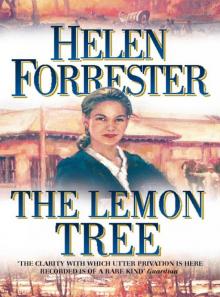 The Lemon Tree
The Lemon Tree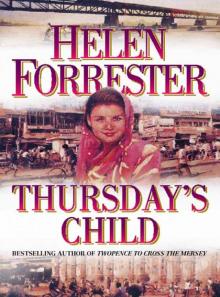 Thursday's Child
Thursday's Child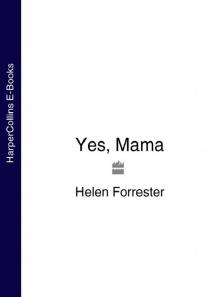 Yes, Mama
Yes, Mama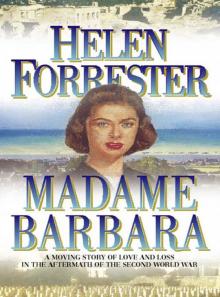 Madame Barbara
Madame Barbara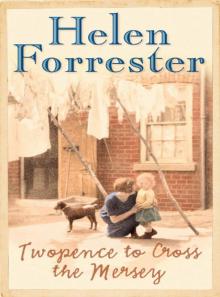 Twopence to Cross the Mersey
Twopence to Cross the Mersey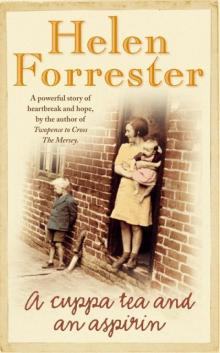 A Cuppa Tea and an Aspirin
A Cuppa Tea and an Aspirin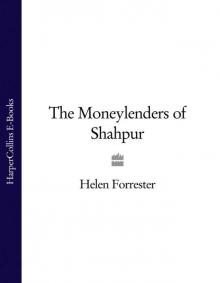 The Moneylenders of Shahpur
The Moneylenders of Shahpur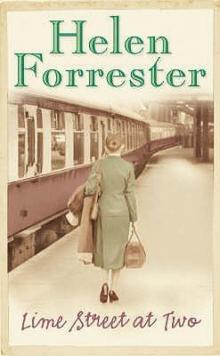 Lime Street at Two
Lime Street at Two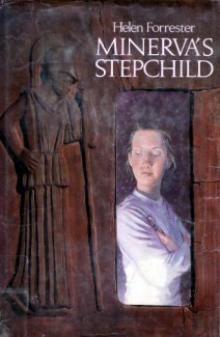 Minerva's Stepchild
Minerva's Stepchild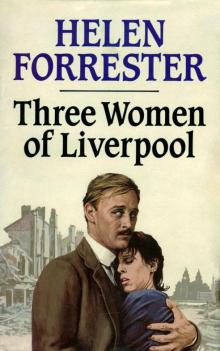 Three Women of Liverpool
Three Women of Liverpool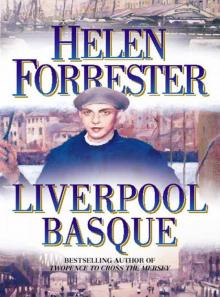 The Liverpool Basque
The Liverpool Basque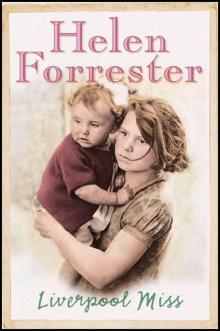 Liverpool Miss
Liverpool Miss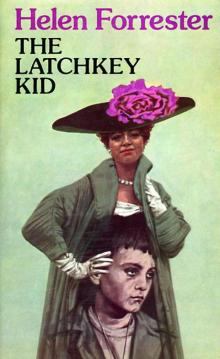 The Latchkey Kid
The Latchkey Kid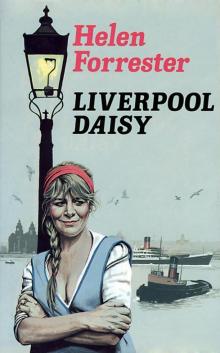 Liverpool Daisy
Liverpool Daisy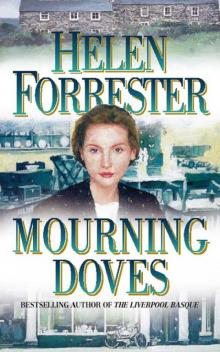 Mourning Doves
Mourning Doves